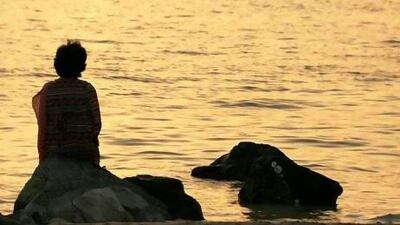It’s that time of year again. Red carpets are already being rolled out and Black Pearl prizes polished in preparation for next month’s Abu Dhabi Film Festival, where Richard Gere and other big names will follow in the footsteps of George Clooney, Uma Thurman, Tilda Swinton, Shah Rukh Khan, Queen Noor of Jordan, Omar Sharif and dozens more in bringing a dash of high--voltage glamour to the most headline-grabbing movie showcase in the region. With Doha Tribeca in November and the Dubai International Film Festival in December, Gulf audiences have a three-month banquet of cinematic celebrations.
All less than a decade old, the Gulf’s big three festivals are the glitzy new kids on the block. Across the wider Middle East, similar showcases for local and international screen talent have a longer history, some stretching back more than 40 years. And while the revolutions of the Arab Spring had a negative impact on some festivals, with Cairo taking a year off and Beirut scaling down its operations, they are also proving to be inspiring subject matter for a new generation of film-makers.
The Mediterranean Short Film Festival / National Festival of Tangiers
Country: Morocco
Dates: October 1-6 / January 2013
Tangiers may be overshadowed by Marrakech as a flashy festival hub, but the Moroccan Cinematographic Centre (CCM) still provides an important platform for emerging screen talent from across the region. Celebrating its 10th anniversary, the latest Mediterranean Short Film Festival will feature 52 films selected from a pool of 800 submissions. Among the locally grown work will be three very different stories of pan-generational family bonds: Marayam Touzani’s prize-winner Quand Ils Dorment, Hicham Ayouch’s tense Comme Ils Disent and Mounir Abbar’s charming La Cible. Reflecting the fast-rising output of Morocco’s state-subsidised film industry, the CCM also hosts the 14th National Film Festival in Tangiers in January, a fertile showcase for locally produced full-length features.
Baghdad International Film Festival
Country: Iraq
Dates: October 3-7
Ongoing security problems in Iraq have meant the BIFF, launched in 2005 by the NGO No-Borders Iraqi Cinematographers, has only been staged three times so far. But this year’s fourth edition is the biggest yet, with 300 films from more than 60 countries including France, South Korea, Morocco, Algeria, Egypt and Syria. Among its six sections, which include a strand dedicated to Arab women filmmakers, will be the Emirati director Nujoom Al Ghanem’s award-winning emigration documentary Amal, Akram Hidou’s acclaimed Kurdish-Iraqi drama Halabja – The Lost Children and Christian Petzold’s stylish East German retro-thriller Barbara. According to the festival director Taher Alwan, the BIFF’s multicultural agenda aims to “establish a cinematic tradition in Iraq by offering Iraqi, Arab and foreign filmmakers the opportunity to join together and share their experiences.”
Beirut International Film Festival
Country: Lebanon
Dates: October 3-11
Launched in 1997, Lebanon’s leading film festival usually punches above its weight on the international stage. But unrest across the region means this year’s 12th edition will be “smaller and more intimate”, according to the festival director Colette Naufal. Even so, the Planete Araj multiplex will still screen a rich global menu of films, opening with the first-time Lebanese director Lara Saba’s Blind Intersections and closing with the mind-bending new Bruce Willis sci-fi thriller Looper. The programme also includes the Emirati director Nawaf Al Janahi’s Sea Shadow, Thomas Vinterberg’s terrific Danish thriller The Hunt, the Romanian director Cristian Mungiu’s Cannes prize-winner Beyond The Hills and an entire section of films about last year’s Egyptian -revolution.
Carthage Film Festival
Country: Tunisia
Dates: November 16-24
The oldest film festival in the region, the JCC (Journées Cinématographiques de Carthage) is a biannual event launched in 1966 by the Tunisian minister of culture. Based at the soaring glass skyscraper of the Hotel Africa in downtown Tunis, it screens around 250 films from 70 countries, with a core focus on work from the Maghreb, Saharan Africa and the Middle East. According to Mohamed Médiouni, the president of the festival’s Steering Committee, the first JCC after the Jasmine Revolution that swept Tunisia and ignited the Arab Spring has a vital mission to “meet the expectations of young Tunisians who exported to the world concepts of freedom, justice and dignity”.
Cairo International Film Festival
Country: Egypt
Dates: November 27-December 6
Caught in the political crossfire that has rocked Egypt over the past two years, the CIFF was cancelled last year and has been in a state of confusion ever since. Just last month, the filmmaker Marianne Khoury replaced the newly installed artistic director Youssef Cherif Rizkallah after objections from the country’s Cinema Writers and Critics Association, who founded the festival in 1976. But the new minister of culture, Shaker Abdel Hamid, recently confirmed that the festival’s 35th edition is going ahead in November, with the Indian director Madhur Bhandarkar joining the international jury. The programme has yet to be announced but Egypt still has the most prolific cinema industry in the Middle East, with post-revolutionary stories helping to re-energise local filmmakers, many of whom protested in Tahrir Square last year.
Marrakech International Film Festival
Country: Morocco
Dates: November 30-December 8
A glamorous gathering that enjoys the patronage of Morocco's King Mohammed VI and his younger brother, Prince Moulay Rachid, the Marrakech International Film Festival has established a starry reputation since its inception in 2000 with guests including Leonardo DiCaprio, Martin Scorsese, Shah Rukh Khan, Leila Hatami, Sigourney Weaver, Forest Whitaker and John Malkovich all flying in to soak up the winter sunshine. The festival has also been credited with helping revitalise Morocco's film industry over the past decade, boosting local production to around 25 features a year. The Bollywood superstar Khan is rumoured to be returning in December as part of a delegation led by the Indian screen legend Amitabh Bachchan to celebrate 100 years of Hindi cinema.

